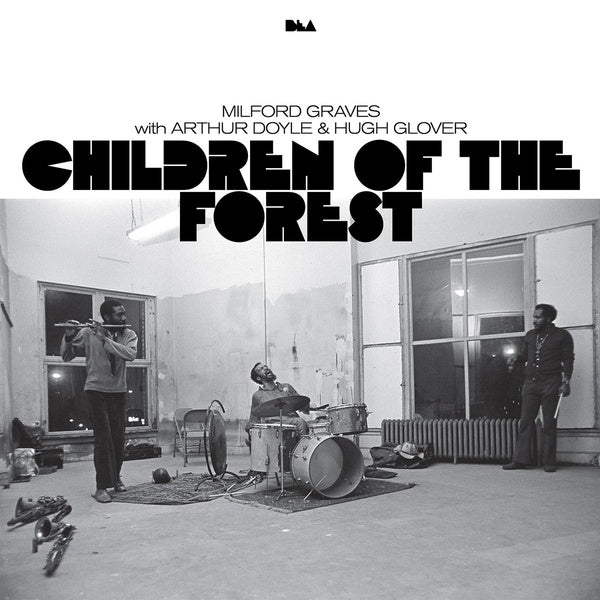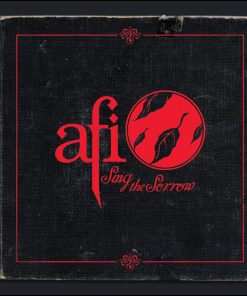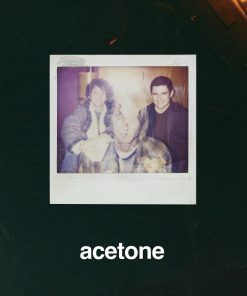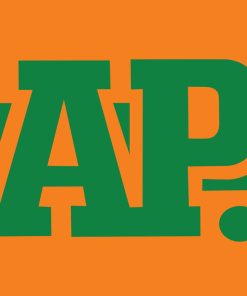Milford Graves w/ Arthur Doyle & Hugh Glover – Children of the Forest 2LP Black Editions Archive
$ 42,98 Original price was: $ 42,98.$ 25,79Current price is: $ 25,79.
“Black Editions Archive is ecstatic to announce the newest release in the Milford Graves Archival series, the double LP, Children of the Forest, featuring previously unreleased 1976 sessions with Hugh Glover and Arthur Doyle that re-write the book on Milford Graves‘s ensemble music of the 1970s. Graves recorded these sessions himself in his legendary Queens basement laboratory and workshop in the weeks immediately leading up to the March 1976 session that, with the same unit, produced what many consider his most iconic album, Bäbi, recorded at WBAI-FM Free Music Store. Following the death of Albert Ayler in 1970 and up until his storied trip to FESTAC 1977 in Lagos, Nigeria, Graves gigged fairly often as a band leader in the New York Loft scene and traveled twice to Europe (1973, 1974) with duos, trios and quartets comprised of fellow New York City based musicians — almost always with Hugh Glover, and variously including Arthur Williams, Joe Rigby, Frank Lowe, and Arthur Doyle. The three sessions that comprise Children of the Forest date from near the end of this intensive period of grassroots activity by Graves during a peak era of musical & cultural ferment in jazz & Black American Music. The earliest recordings feature the duo of Graves (drums & percussion) and Glover (tenor saxophone) from January 24th, and Graves solo (drums & percussion) from February 2. In an interview commissioned for this release and conducted by Jake Meginsky, Glover discusses the mastery of form and execution in Graves’s playing and approach: ‘It has always been a mystery to me how Cuban drummers in Bata were able to modulate the rhythm and the meter. Well, it takes more than one player to do it Cuban style. Prof (Graves) shows you can do it as one player. The reason he’s able to do it is because he has an encyclopedic knowledge of the rhythms of the Caribbean, rhythms of Africa, plus rhythms of jazz. He can move around without losing the feel.’ The centerpiece of this set is the March 11 session featuring Graves, Doyle on tenor saxophone and fife, and Glover on a rather unusual pair of instruments that would not appear on the Bäbi recording just one week later — klaxon and the vaccine, a Haitian one-note trumpet. Glover: ‘The klaxon — it’s important to keep that tribal possession-state feel… because it’s not a Hollywood gallop. It’s very much about the energy, this gallop. Prof (Graves) talks about that, talking about the low, the galloping as in the Divine Horsemen of Haiti.’ Doyle’s visceral and unrestrained tenor playing on the March 11 session is further evidence as to why his work, especially during this period, has attained mythic status among aficionados of free jazz and even noise music. Graves would later discuss Doyle in Conversations (William Parker, 2011 Rogue Art Books): ‘There was another horn player I know that really got into it from the gut and he had a certain kind of intellectualism when we performed? that was Arthur Doyle. (laughs) Arthur Doyle would just go into it. I mean really just go into it… something happened there that was beyond the immediate intellectual control of the people who was doing it. It was about just doing it and don’t worry about all these people putting you down. The most important thing was what was coming out of your instrument and how it was effecting people.’ Listening to these recordings, that spirit is unmistakable. The original 1/4 inch reel, labeled ‘Pygmy’ by Graves, including 15 minutes of audio from an unknown documentary on the Mbuti People of the Congo Basin, are among the few tapes we’ve so far encountered from Graves’ private archive that seem clearly intended in his conception & sequencing to be an album. For this reason, these recordings are now presented exactly as assembled by Graves, for soonest possible release.” —Peter Kolovos & Michael Ehlers
Deluxe double-LP tip-on gatefold with pigment ink foil stamping featuring photographs by acclaimed photographer and free jazz historian Val Wilmer. Includes insert with new interview of Hugh Glover by Jake Meginsky.
Fast Shipping and Professional Packing
We offer a broad range of shipping options due to our long-running partnerships with UPS, FedEx and DHL. Our warehouse employees will pack all goods to our exacting requirements. Your items are carefully inspected and secured properly prior to shipping. We ship to thousands of customers every day from all over the world. This demonstrates our dedication to becoming the largest online retailer in the world. Warehouses and distribution centres can be located in Europe as well as the USA.
Note: Orders that contain more than one item will be assigned a processing date depending on the item.
We will carefully examine all items before sending. Today, the majority of orders will be shipped within 48 hours. The expected delivery time will be between 3 and 7 days.
Returns
Stock is dynamic. It's not completely managed by us, since we have multiple entities, including the factory and the storage. The actual inventory can fluctuate at any time. It is possible that the stocks could be depleted after your order has been processed.
Our policy lasts 30 days. If you haven't received the product within 30 days, we're not able to issue a refund or an exchange.
To be eligible for a refund the product must be unopened and in the same state as when you received it. The item must be returned in its original packaging.
Related products
Uncategorized
Uncategorized
Uncategorized
Uncategorized
Uncategorized
Uncategorized
Uncategorized
Uncategorized
Uncategorized
Uncategorized
Uncategorized
Uncategorized
Uncategorized
Uncategorized
Uncategorized
Uncategorized
Acid Mothers Temple & The Melting Paraiso U.F.O. – Myth of the Love Electrique 2LP Riot Season (UK)
Uncategorized
Uncategorized
Uncategorized
Uncategorized
Uncategorized





































